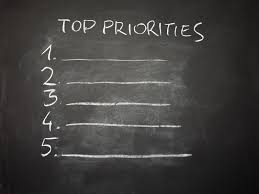#Priorities
What are
the things that keep you up at night? Are they your studies? Work? The simple
task of feeding your kids from one day to the next? It took me a while to come
to terms with the fact that for the average Kenyan, a little ache here or a
pain there can wait. A cough that’s lasted for more than a month despite having
drank an arsenal of cough syrups is only slightly worrisome. Please don’t get
me started on our unhealthy tendency to self-medicate. I’m guilty of doing it
myself. The average Kenyan goes to the
hospital when the pain is so much that it wakes them up at night. When the
headache starts affecting their sight. In other words, when they can’t put it
off any longer. And who can blame them; they have bigger problems to worry
about. They can’t afford to miss a day or even a morning of work to go to the
hospital. They can’t afford transport to the nearest hospital or health centre.
They have to choose between feeding themselves and their loved ones and taking
a trip that may later end-up being unnecessary.
And by
the time they come to hospital, they are told that the headache, was really a
stroke. The cough was really tuberculosis. That pain in their leg is now a bone
infection that needs special (Read: expensive) antibiotics to treat. Do you know how frustrating it is to see a
patient who’s developed something really complex, when the whole thing could
have been prevented and treated rather simply if they’d only just come sooner.
Do you know what it is to get halfway through a patient’s medical history,
realise that their cancer is terminal while their relatives look hopefully at
your ‘knowledgeable’ self. Fortunately, it’ll be a few months before I’ll have
the responsibility of personally breaking such news on a regular basis, but it
still sucks!
And
sometimes the condition isn’t terminal, but the treatment will be super-expensive.
And they don’t have insurance. And I’m not talking about the fancy private
insurance companies that have billboards and TV ads. I’m talking about NHIF. An
insurance scheme that’s available to almost anyone, has very friendly premium
rates and subsidises and for wide range of tests and treatments in both public
and private health facilities. It really
saves from the hassle of having to look for money that isn’t readily available
on-hand for tests that are urgent.
My point
is that we need to get to a point where health is a priority. To us and to the
government. It’s cheaper to prevent illness that to treat it. Better health
means that families don’t lose their breadwinners, children don’t become
orphans and people are generally more productive. You’d think that a developing
economy like ours would want its workers to be more productive by spending less
time sick.
We need to get to a point where we can save and
prepare for a rainy day. Insurance seems like a hassle when you’re well but it’s
such a relief when out of the blue you need to fork-out large amounts of cash
for important diagnostic tests. And as medics we try. We maximise on our
clinical skills just in case ‘fancy’ tests aren’t available to help us in
diagnosis and management of a patient. But sometimes it only takes us so far.
So just
this once, reorder your priorities a little bit. Invest in insurance. Don’t
ignore what your body is telling you. Don’t lean on the medical expertise that
you don’t have. For more info on NHIF, visit their website: http://www.nhif.or.ke
Ciao...
Photocredit: https://safestart.com




Comments
Post a Comment